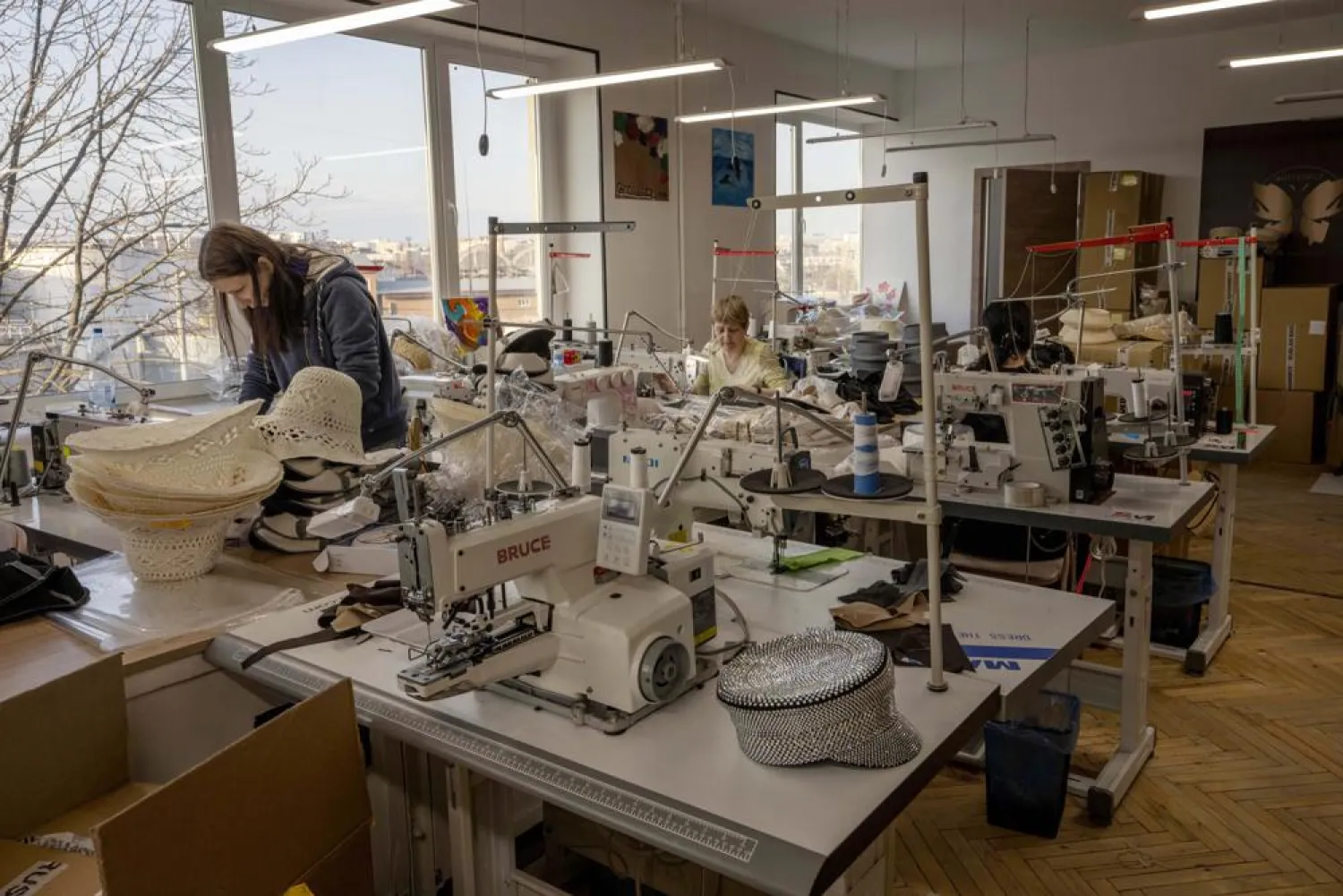Just days ago, Artem Gorelov was trying to survive in one of the most brutal parts of Ukraine, the Russian-occupied Kyiv suburb of Bucha. Now he stands in a quiet room in the late afternoon sunlight, hand-making hats for a local fashion brand worn by Madonna and Ukraine’s first lady.
Gorelov has joined Ukrainians’ massive migration west to the city of Lviv, near Poland. And, unusually, the 100-employee company he works for arrived with him. Searching for safety but determined not to leave Ukraine, the brand Ruslan Baginskiy is among the businesses that are uprooting amid war.
Two months ago, first lady Olena Zelenska was in the hat-maker’s showroom in Kyiv. Now the company operates in two borrowed classrooms of a school, its workers delicately piecing together materials near students’ decades-old sewing machines.
It is a slower process, but clients like Nieman Marcus and Bloomingdale’s have expressed support, said co-owner Victoria Semerei, 29.
She was among the Ukrainians who didn’t believe Russia would invade. She recalled being in Italy the day before the invasion and telling partners that war wasn’t possible.
Two hours after her plane landed back in Kyiv, the bombardment began.
Daily bombings led the company’s three co-founders to make the decision to flee. While some employees scattered to other parts of Ukraine or to other countries, about a third moved the company’s essentials to Lviv two weeks ago.
“Normal life will resume one day,” Semerei said. “We need to be prepared.”
The company threw itself into the national wartime effort that has seized Ukraine, donating money to the army and turning its Instagram feed from brand promotion to updates on the war.
“This is not the time to be shy. Not anymore,” co-founder and creative director Ruslan Baginskiy said. The company once had Russian clients, but that stopped long before the invasion as regional tensions grew. “It’s not possible to have any connections,” he said. “It’s all political now.”
As part of that spirit, Semerei rejected the idea of moving the company to a safer location outside Ukraine. “We have our team here, the most precious team we have,” she said. “Talented, all of them.”
Past brand campaigns for the company have identified closely with Ukraine, photographed in places like Kherson, now under Russian occupation. Cities that the hat-maker’s employees once called home have been torn apart.
“So many Russian troops,” said Gorelov, who fled Bucha near the capital. “It was not even possible to defend.”
His arrival in Lviv, where life goes on and fashionable shops remain open, was surreal. It took days to adjust. Now “I feel relaxed doing this,” he said, a new hat under construction on the table before him.
In another corner of the makeshift workspace, Svetlana Podgainova worried about her family back in the separatist-held territory of Luhansk in eastern Ukraine, where pro-Moscow separatists have been fighting for control for nearly eight years. It was already difficult to visit with family even before the invasion. Now her brother can’t leave the region.
She feels horrible seeing her colleagues from other parts of Ukraine pulled into the war and wishes that normal life would return for them all. Until then, “I wanted to come back to work so much,” she said. It occupies her mind and makes her feel less alone in a new city, and she calls her colleagues a “big family.”
The hat-maker’s employees are among the estimated 200,000 displaced people now living in Lviv, with the co-founders now sharing an apartment with several other people.
Considering the challenges, this year probably will be the worst in the company’s six-year history, Semerei said. But “this is something we’ll go through and hopefully be even stronger.”









